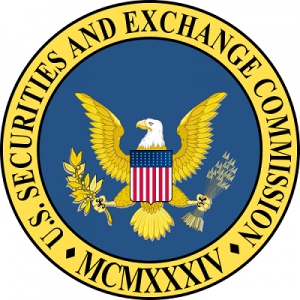New Securities
Firms acquire funds by issuing new securities and selling them to the general public. An investment bank serves as a middleman to channel money from investors to firms who need capital. Because investment banks have brokerage units with many customers, they are able to sell the securities without the costly search a firm would have to undertake.
In underwriting, the investment bank selling the securities bears the risk associated with the sale. They agree to give it their best effort to sell the securities, but do not guarantee a specified amount of money. The new issue market is very volatile. Insiders may use the public offering to sell their holdings after a lock-up period expires.
Financial Intermediaries
Another form financing, especially short-term, is through financial intermediaries. These intermediaries were developed to facilitate the indirect transfer of saver’s funds to borrowers. They include commercial banks, savings and loan associations, mutual savings banks, credit unions, life insurance companies, pension plans and money market mutual funds.
Financial intermediary instruments include:
- Certificates of Deposits (CD’s)
- Commercial Paper
- Repurchase Agreements
- Banker’s Acceptances
- Tax Anticipation Notes
Market Makers
Securities are bought and sold every day on either an organized exchange or the informal over-the-counter market. In either case, professional securities dealers make markets in securities and facilitate their transfer by buying and selling in their own account. They profit by pocketing the difference of bid and ask quotes.
This difference is called the spread. The size of the spread is determined by the number of market makers, volume of transactions and the number of shares outstanding. The dealers not only are compensated by the spread, they charge commission fees, earn income on their holdings and enjoy any rise in security prices.
Market makers try to quote an equilibrium price which equates the supply with the demand for the security. Although they can’t set the market price, they maintain an orderly market by buying in large blocks and selling off pieces according to demand.
Security Exchanges
When a company first offers its shares to the public, they are usually traded over the counter. The listing of a firm’s security on a major exchange has an element of prestige.with the New York Stock Exchange being the most famous. There are also regional and virtual exchanges capitalizing on niches of the market. Daily transactions are reported by the financial press in print (becoming rare) and online.
Large blocks of listed stocks may be traded over-the-counter in what’s known as the third market. Participants are usually large institutions who desire unanimity. A fourth market skips the middleman and trades directly with the issuer through a computerized system.
Mechanics of Investing
You purchase stocks and bonds through brokers. They have to take proficiency exams but should not be considered experts. Essentially there are two courses of action involving depending on your outlook for the security. If you have a bullish view, you will purchase or take a long position. If you are bearish, you would sell short the security by borrowing shares, selling and then buying the shares back at a lower price, pocketing the difference.
Types of Orders
- Market order- an order to buy or sell at the current market price or quote. This the only type SCM uses.
- Limit order- an order placed with a broker to buy or sell at a specified price.
- Day order- an order placed with a broker which is canceled at the end of the day if not executed
- Good-Till-Canceled order- an order placed with a broker which remains in effect until it is executed by the broker or canceled by the investor.
- Stop order- a purchase or sell designed to limit an investor’s loss or to assure a profit on a position in a security.
You must pay for the securities as they are purchased. You can buy on margin means you are using borrowed funds, but SCM doesn’t this method due its riskiness. The margin requirement is the minimum percentage of the total price You must pay and is set by the Fed.
Once the shares have been purchased and paid for, the broker takes delivery electronically on your behalf and also acts as a custodian.The custodian is responsible for reporting confirmation of trades, monthly statements and all tax reporting. Your cost is for the trade is the commission and the spread. Discounted commissions are often associated with higher spreads.
Regulation
The security industry is subject to a substantial degree of regulation both from the federal and state governments. The purpose is to protect the investor by ensuring honest and fair practices and providing full disclosure.
The Security Act of 1933 and Security Exchange Act of 1934 were hatched during the Depression and govern much of the activity today. They forbid market manipulation, deception and misrepresentation of facts and fraudulent practices. Publicly held firms are required to keep current financial information on file with the SEC.
The Investment Company Act of 1940 extended regulation to mutual fund and other investment companies. The Securities Investor Protection Act of 1970 protects investors from brokerage firm failures and bankruptcies.
Visit these topics for further detail or return to the Investment Basics page:
- Basics Introduction
- Security Markets
- Information Sources
- Risk and Portfolio Theory
- Investment Companies
- Stock Valuation
- Macroeconomic Environment
- Statement Analysis
- Bond Market
- Foreign Securities
The material presented on this page and Investment Basics pages were adapted from Dave’s lecture notes for the Investments for Professionals course taught at UCLA 1998-2005 and three decades of practical experience. See our Site Credits page for reference sources.


